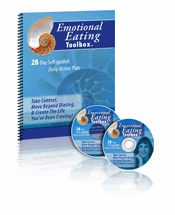I’m often asked this. Clients and readers are often curious because I’m not a weight loss surgery patient myself and because I don’t have a “weight loss story.” Except that I do. My story has emerged from the stories of others.
The truth is, I founded Enduring Change Coaching after years of practicing as a Clinical Psychologist. As a Clinical Psychologist, one area of expertise has been helping people with food and weight issues. Since 1995, I have worked with just about every kind of eating disorder, weight issue, and food issue an adult can have. I’ve witnessed peoples’ pain, struggles and desperation, and I’ve had the honor of sharing in their experiences of transformation (and I’m not just talking about weight)—as they found their own paths to making peace with food, resolving weight issues, putting eating and food in a much smaller place in their lives, and moving on to focusing on more enjoyable and empowering things.
I developed the Emotional Eating Toolbox™ and run the bariatric surgery coaching programs at Enduring Change because I saw people struggling with their weight and feeling hopeless and I knew the tools and strategies that I have developed with my clients can make a profound difference. I’ve met too many people who believe that taking control of their weight and their relationship with food isn’t possible and who believe that they must resign themselves to fighting—and losing—battles with weight forever.
I’ve known and worked with too many bariatric surgery patients who are stuck in a mode of self-blame. They believe they should be able to succeed with weight loss and with weight loss surgery without help or support and they blame themselves when they struggle.
I’ve known other weight loss surgery patients who were never told that there are other essential tools they need to acquire and use with weight loss surgery. (Thankfully, I’m seeing less of this.) They too feel like failures when they find themselves struggling with emotional eating, overeating and weight gain after surgery.
And I’ve worked with plenty of people who have had weight loss surgery, who know darned well that the procedure they had is only one tool. They know that they have other challenging work ahead of them, and other tools they will need to acquire to get where they want to go. The problem is, they aren’t sure where to get those tools. There are (in many areas) too few support groups (especially for individuals who are 12 months or more post-surgery) and not enough information about good resources. There is not enough information about overeating and emotional eating. People are quick to tell you not to overeat, not to use food to fill an “emotional hole,” and not to eat to cope with stress or boredom or loneliness. But there is not enough quality information and help out there about what to do instead.
That’s been my experience. And that’s why I coach individuals and hold special coaching programs and conferences for people who have had bariatric surgery—by telephone—so anyone can attend. It’s why I periodically offer free teleclasses. Most importantly, it was one of my motivations for creating the Emotional Eating Toolbox™ Self-guided Program. Because there is too much shame and self-blame out there. And because we all are a lot more likely to succeed when we have the right tools.
Take good care,
Melissa
Monday, June 9, 2008
“Melissa, Why do you work with bariatric surgery patients?”
Posted by
Melissa McCreery, PhD
at
12:07 PM
![]()
![]()
Labels: bariatric surgery, change, Coaching, emotional eating, Emotional Eating Toolbox, free teleseminar, gastric bypass, lap band, overeating, weight loss surgery
Subscribe to:
Post Comments (Atom)








No comments:
Post a Comment